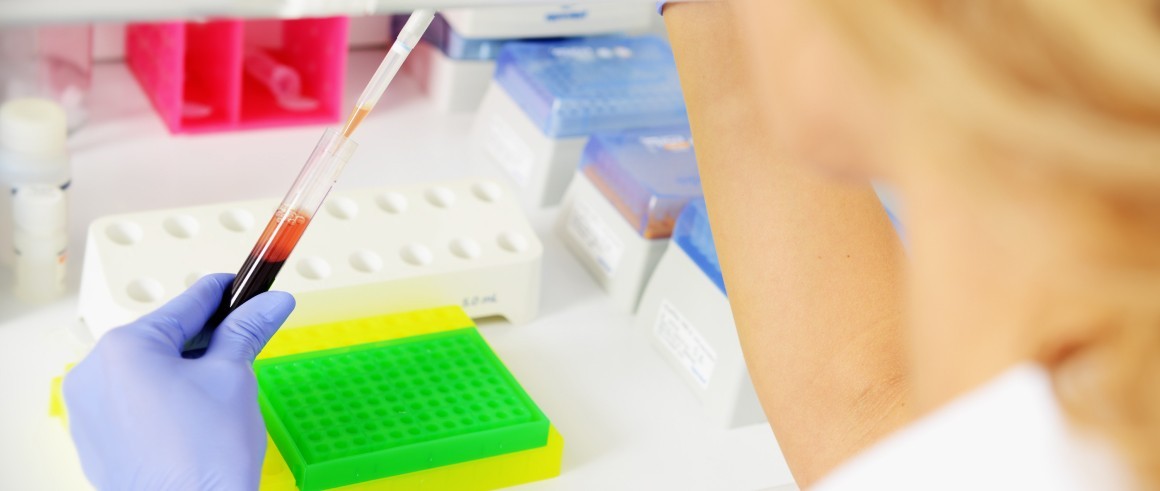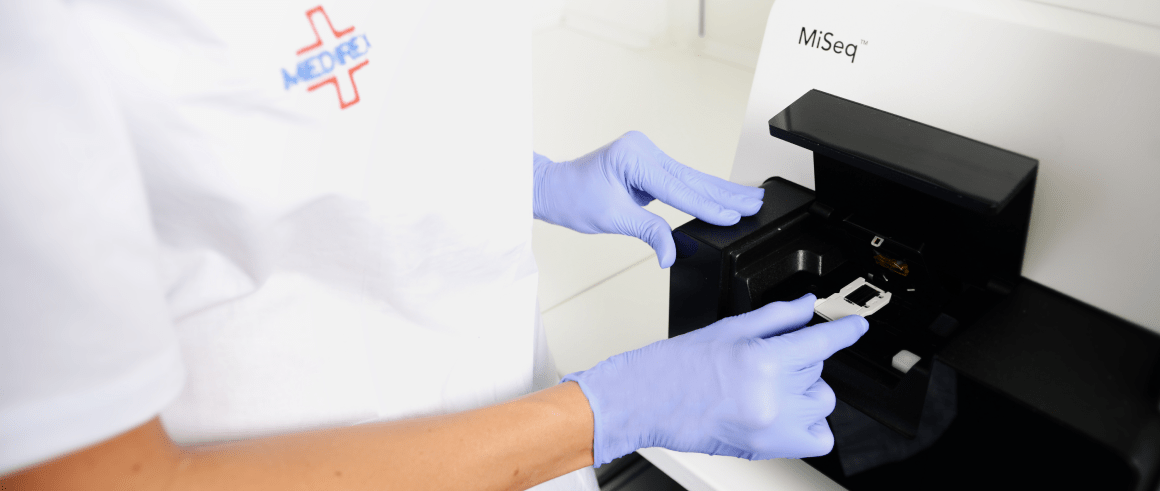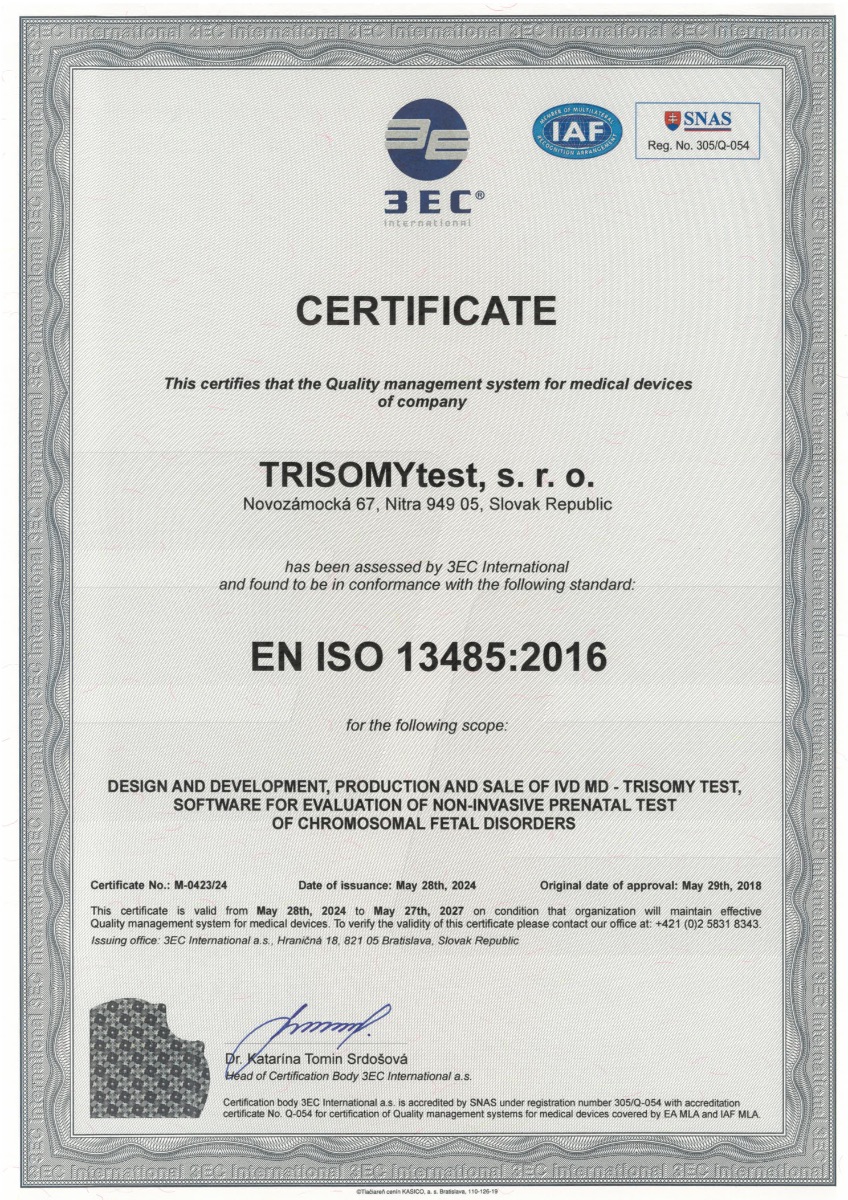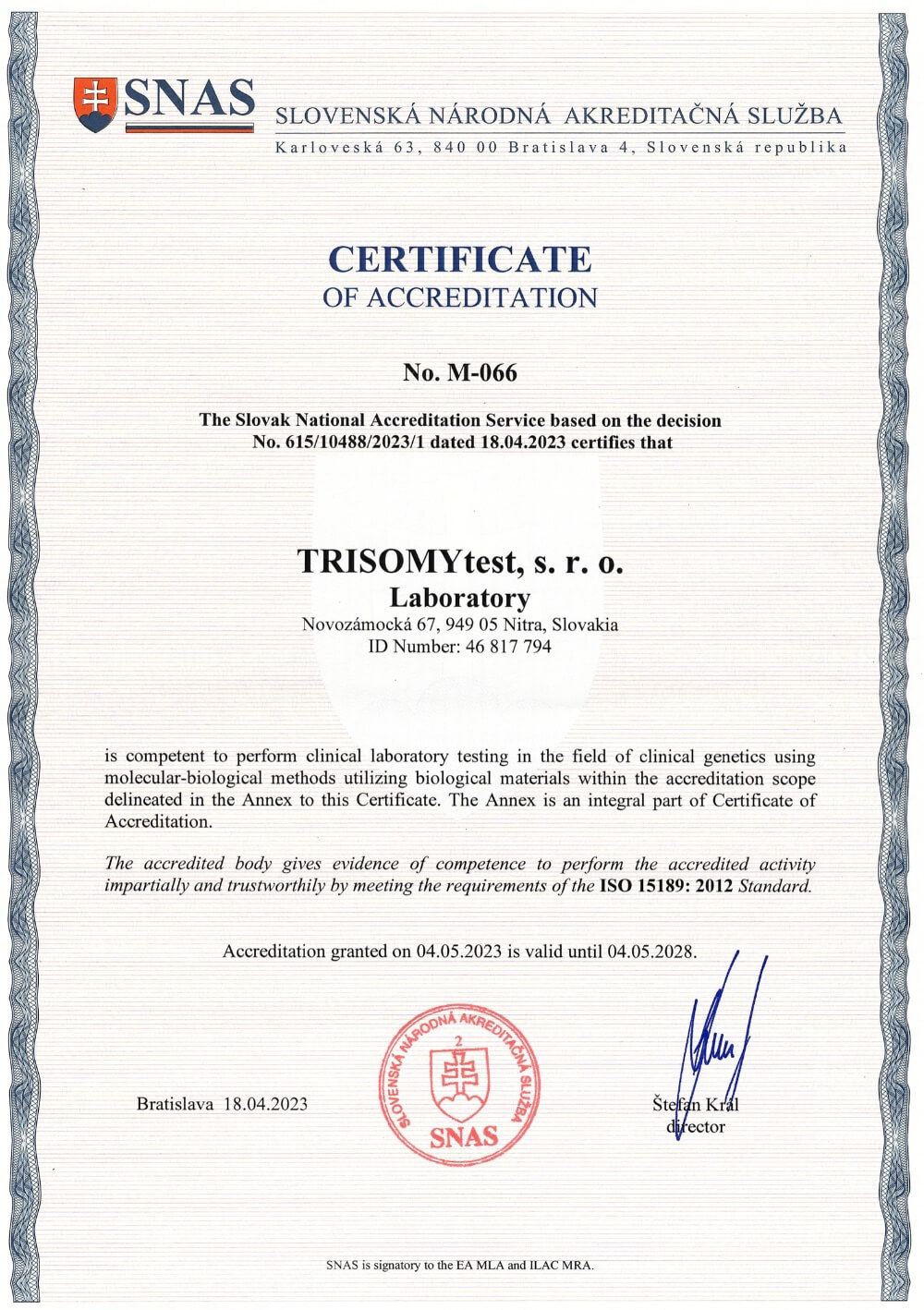Why to choose TRISOMY?
Unique
It can analyze the widest range of fetal chromosomal disorders across the entire genome starting from the 11th week of pregnancy.
Reliable
More than 99.93% reliability in the detection of the most common fetal chromosomal disorders confirmed by a study conducted on 7,279 samples of pregnant women.
Comprehensive
Delivers a detailed screening of fetal DNA while providing a free verification of a positive result by testing of amniotic fluid using the GenomeScreen prenatal test.
Pain-free
Test made from the blood sample of the future mother.
Fast
The result is available within 5 working days.
Safe
Poses no risk to the fetus.
Test safety
TRISOMY test is a non-invasive, safe and pain-free screening test from the sample of the future mother’s blood, which can exclude the presence of fetal chromosomal disorders with great precision starting from the 11th week of pregnancy. DNA of the fetus circulates in the mother’s blood already at early stages of the pregnancy. Using the genetic testing methods in our laboratories, the fetal DNA can be isolated, analyzed and the possible occurrence of aneuploidy and chromosome aberrations can be identified.
Compared to other screening methods:
- has a higher sensitivity and specificity for the detection of monitored disorders,
- minimizes false-positive results,
- reduces the number of necessary amniocenteses,
- poses no risk to the mother or future child.
- If the future mother is interested, TRISOMY test can also determine the sex of the fetus.

TRISOMY test results
NIPT test results provide information on selected genetic chromosomal disorders which are statistically most commonly found in the population (up to 85% of fetal genetic disorders). The tests do not detect every single known genetic or other developmental disorder that may occur. By performing these tests, where the result is negative, we can minimize the need for invasive sample collection of fetal genetic material, such as amniocentesis.
Note, Despite the very high sensitivity and specificity of the detection of trisomies on the chromosome 21, 18 and 13, TRISOMY test is considered a screening method, not a diagnostic one. Therefore, a positive test result must always be confirmed by analysis of the sample obtained by amniocentesis or by sample collection of chorionic villi. A negative result of TRISOMY test usually does not need to be confirmed by diagnostic analysis of a sample obtained by amniocentesis, which in the vast majority of cases will allow the pregnant woman to avoid invasive examinations.
In case of a positive result of TRISOMY test, you should undergo a consultation with a specialist in medical genetics who will recommend any further necessary diagnostic tests. In a small percentage of cases, the analysis is inconclusive and laboratory testing is unsuccessful. In such a case, the result is evaluated as "non-informative", i.e. without a clear result.
A) If the delivered sample could not be processed for technical and methodological reasons in accordance with good laboratory practice, or the result of the test fails to answer the diagnostic question, the laboratory performs a free repetition of the test from the same sample (applies to less than 5% of the performed analyses, the delivery of the result is then extended from 5 to 8 working days);
B) If the reason for the ""non-informative"" test is of biological nature, most often it is a exceedingly small proportion of the fetal DNA in the future mother's blood (it is called fetal fraction), the laboratory will try to repeat the analysis from a new sample obtained in a second sample collection, usually after 14 days.
However, the lower proportion of fetal DNA in the future mother's blood in the vast majority of cases is not a cause for exaggerated concern. On the other hand, there is a high proportion of cases with fetal chromosomal disorders found in the population of pregnant women with repeatedly detected low fetal fraction compared to pregnancies with a sufficient level of fetal fraction. Low fetal fraction occurs in less than 5% of pregnant women after the analysis of the first blood sample, in case of repeated sampling and analysis, it is found in only about 1% of pregnant women. Repeated tests are free of charge for the pregnant woman. "
TRISOMY test is suitable for any pregnant woman from the 11th week of pregnancy.
TRISOMY test can also be applied in twin pregnancies, however, in the event of a pathological finding, it is not possible to attribute the finding from the test result directly to any particular fetus of the twins. Compared to conventional screening methods, it delivers higher sensitivity and specificity of detection of the monitored trisomies, thus showing significantly fewer false positive results.

The test is particularly suitable for:

Good to know
TRISOMY test should also be carefully considered in case you have gynecological and obstetric contraindications (for any obstetric contraindications, consult your gynecologist/obstetrician) which may complicate invasive prenatal testing (amniocentesis), such as:
- increased risk of spontaneous miscarriage
- ongoing anticoagulation therapy (decreased blood clotting)
- risk of immunization due to blood group mismatch (negative Rh-factor)
- period between weeks 14 and 16 of pregnancy (increased risk of complications in case of amniocentesis)
- placenta praevia (misplaced placenta)
- uterine fibroids
Before deciding to undergo any non-invasive prenatal testing, consult your gynecologist or a specialist in clinical genetics and have them explain in detail the purpose, benefits and possible risks, as well as alternatives of TRISOMY test, and make sure that you fully understand them. Be sure to tell your physician in detail about any facts related to your health and condition that might affect your choice of the most appropriate healthcare procedure.
TRISOMY test
accreditation and certification
As a company, TRISOMY test has implemented quality management system in compliance with the ISO 9001:2016 standard. The first Slovak non-invasive prenatal test, TRISOMY test is performed in laboratories using methods that are accredited according to the ISO 15189:2012 standard and when assessing the samples, it uses a unique bioinformatic tool which is certified according to the ISO 13485:2016 standard.
Test overview


